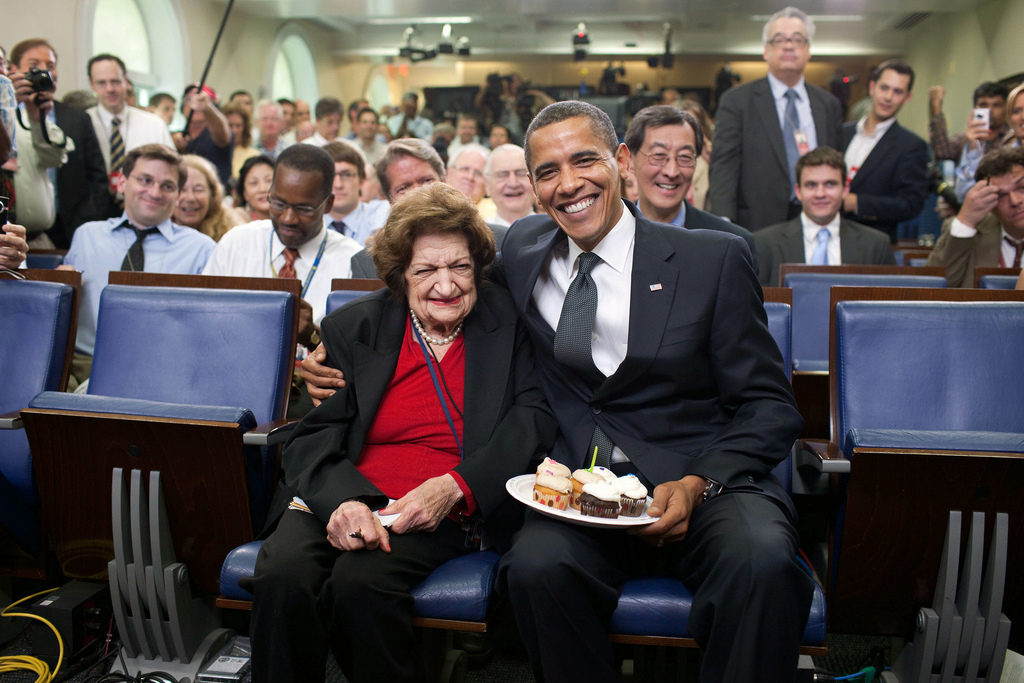Setting America Free
Our war against Islamic radicalism will be fought for many more years, but its defeat will never be achieved so long as we continue to transfer petro-wealth to those who wish to harm us. The U.S. has been forced to coddle some of the world’s worst dictators and despots because, as it stands today, they hold the key to our prosperity. As a result, we have compromised American values and principles.
In a series of study papers and articles written over several years, Gal Luft, a leading advocate for the use of alternate energy resources in the field of transportation suggests that America can reassert control over its foreign policy by freeing itself from foreign oil dependency. It begins with a transition from oil-based transportation fuels such as gasoline to non-oil based transportation fuels such as ethanol and methanol that can be cost-effectively produced in vast quantities. Luft also advocates the transition from gas engine vehicles that offer a mere 22 miles per gallon (mpg) to fuel flexible plug-in hybrid electric vehicles using non-oil based fuels that are capable of providing between 400 and 500 mpg of gasoline. He concludes that the future of this country may well depend on the manner in which we deal with our dependency on foreign oil and puts forth a convincing argument that America will never be able to win the war against Islamic radicalism if energy security is not at the top of our agenda.
Setting America Free
Replacing oil as the mainstay of our energy policy must become central to our practical and strategic approach to winning our long-term struggle against Islamic radicalism as it would dramatically improve Western policy options in the Middle East. In fact, the future of this country may well depend on the manner in which we deal with our dependency on foreign oil and the reality that much of the infrastructure for oil production and distribution in the world lies outside American control in countries whose interests are vastly different from our own – countries that include Saudi Arabia (25%), Iraq (11%), Iran (8%), UAE (9%), Kuwait (9%), and Libya (2%).
As former CIA Director James Woolsey noted in The Futurist (August, 2007):
“If you have Ahmadinejad deciding to pull one million barrels a day off line because he’s unhappy with us pressing him not to develop nuclear weapons, you can have oil go up to $100 per barrel or so. In Saudi Arabia, if for example Prince Nayef, the interior minister, should succeed King Abdullah someday, you’d have a Saudi king who is very close to the Wahhabis and might adopt policies that would be difficult for the United States. If you look back to February ’06 when al Qaeda attacked the Abqaiq production facility in Northeastern Saudi Arabia, one has to realize that had they gotten within mortar range of that facility, they could have taken out the sulfur clearing towers. Robert McFarlane, President Reagan’s National Security advisor, tells us that would take six or seven million barrels of oil a day off line for probably over a year and quite likely send oil up to $200 per barrel.”
Our war against Islamic radicalism will be fought for many more years, but its defeat will never be achieved so long as we continue to transfer petro-wealth to those who wish to harm us. The U.S. has been forced to coddle some of the world’s worst dictators and despots because, as it stands today, they hold the key to our prosperity. As a result, we have compromised American values and principles.
In 2005, the Bush Administration waived sanctions against Saudi Arabia and Kuwait, two of the world’s worst offenders in human trafficking. One is left to wonder if those two countries would have received the same treatment had they been major exporters of watermelons?
In that same year, 2005, Saudi Arabia made $160B from oil exports alone – the vast percentage of which flowed into global Wahabbi/Salafi madrasses and mosques that teach children to hate Shiites, Bahiis, Jews, Christians and anyone deemed an infidel or worse, an apostate Muslim who doesn’t “tow the line.” The Saudis also use their oil revenues to control most of the Arabic language media and to blackmail the Europeans into acting in ways that often contradict American interests. The result is that we are financing our enemies by our oil dependency. As the U.S. continues to invest in the oil economies of the Middle East and the Muslim world, these economies continue to use their oil revenues to spread radical Islam, promote anti-Semitic and anti-American ideas, and in some cases, develop radiological, chemical and biological weapons.
Currently, the United States consumes 25% of the world’s oil while possessing at most 3% of the world’s oil reserves. Of the 11 million barrels per day (mbd) the U.S. imports, close to 3mbd come from the Middle East. Translated into real dollars, the U.S. will borrow over $320B this year (almost a billion dollars a day) just to import oil. We have become our own worst enemy.
Indeed, oil imports constitute a quarter of the U.S. trade deficit and are a major contributor to the loss of jobs and investment opportunities. Our dependence on foreign oil is becoming an existential threat to our country and our way of life. Every time an American goes to a gas station, he/she is sending petro-dollars to America’s enemies, which is why our enemies view oil as our Achilles’ heel.
Osama bin Laden’s strategy is to bleed us dry. We “bled Russia for ten years until it went bankrupt and was forced to withdraw [from Afghanistan] in defeat. [‘] We are continuing in the same policy to make America bleed profusely to the point of bankruptcy,” bin Laden boasted in his October 2004 videotape.
America will never be able to win the war against Islamic radicalism if energy security is not at the top of our agenda. That is because our foreign policy has been subjugated to our energy needs. The U.S. has placed itself in the dangerous situation of funding both sides in this war. We finance the defense of the Free World against our enemies using our tax dollars, and yet we continue to support our enemies by transferring billions of our tax dollars to them as petro-wealth.
A Chinese proverb says: “If we don’t change course, we’ll end up where we’re headed.” That is, if we don’t change course, we will bleed ourselves to death as our enemies gather greater strength. Steadily increasing world demand for oil means further enrichment of the corrupt and dictatorial regimes in the Persian Gulf and continued access of terrorist groups to a viable financial network that allows them to remain a lethal threat to the U.S. and its allies.
In a series of study papers and articles written in numerous prestigious journals between 2003-2007, former Israeli Lt. Col. and counter terrorism expert Gal Luft, the publisher of Energy Security, Co-Chair of the Set America Free Coalition and executive director of the Institute for the Analysis of Global Security (a Washington-based energy policy think tank) presented a number of well-reasoned, energy-based arguments designed to show America how to re-assert its control over its energy needs – and by extension, its foreign policy. “The U.S.,” he argued, “should embark on an accelerated shift, enabled by modern technology, toward an economy based on indigenously produced next-generation fuels, meaning non-oil based transportation fuels such as methanol, ethanol, biodiesel, electricity and others derived from abundant…energy resources such as coal, biomass, and municipal waste.”
In his analyses, Luft suggests a gradual transition away from oil-based fuels in a fashion similar to the energy shift that took place from wood to coal in the 17th century and from coal to oil three centuries later. Modern hybrid vehicles, he notes, get approximately 50 miles per gallon and run on a battery and gasoline. Ford, GM, Honda and Toyota make such hybrids. The next phase, he argues, should involve the introduction of “plug-in” hybrids that would increase mileage to 75-100 miles per gallon using powerful energy storage lithium-ion batteries that can be recharged at night like laptops, cell phones and iPods.
Daimler Chrysler is introducing a plug-in hybrid version and Toyota expects to produce one within the next 18 months. Unlike standard hybrids, these plug-in versions draw power not only from the engine, wheel spin and captured braking energy, but directly from any standard electrical outlet. The results would be dramatic.
According to the Department of Transportation, 40% of Americans travel 20 miles or less per day and 60% of Americans travel 30 miles or less each day. Since plug-in hybrids can run off energy stored in their battery-powered electric motors for up to 60 miles, most American commuters would rarely if ever need to “fill up” unless undertaking longer journeys. Luft argues that increasing the number of plug-in hybrid electric vehicles would not only empower electricity companies, but would end the transportation fuel monopoly held by the oil companies.
He then goes one step further and suggests that every U.S-sold vehicle should be flexible-fuel compatible – meaning that the vehicle should be able to run on an 85%-15% ethanol/methanol vs. gasoline blend thus reducing the actual amount of gasoline needed. This technology already exists, and the flexible-fuel conversion process only involves substituting a different fuel sensor and some different fittings in the fuel line to accommodate the characteristics of methanol and ethanol. The conversion cost is less than $1,000 per vehicle and even that cost would be reduced as the volume of production of such cars increases.
In fact, there are already over five million flexible-fuel compatible cars on American roads today that are capable of using such an ethanol/methanol-gasoline mixture though most Americans driving these cars don’t even know their cars can tolerate such fuels. Ford Taurus, Dodge Caravan, Dodge Spirit, Plymouth Acclaim, Ford Ranger pick-ups, Mercedes C-320 and many others are all flexible-fuel cars, as are 40% of Brazil’s new cars. Since most of the flexible-fuel cars sold in Brazil are made by American auto manufacturers like Ford and GM, there is no reason why every new car sold in the U.S. should not have identical fuel flexibility as well.
Finally, Luft recommends merging plug-in hybrid technology with flexible-fuel compatible engines. Together, these two technologies could produce the equivalent of 400 to 500 miles per gallon of gasoline compared to an average of 22 miles per gallon in today’s vehicles! It is a small step to unify these two technologies, but an enormous stride forward in our quest for energy self-sufficiency. Simply stated, the greater the ethanol/methanol percentage, the less gasoline required, especially when added to a plug-in hybrid that may not need any fuel of any kind for short commutes.
Given that the cost of a gallon of gasoline has already exceeded the $3.00 mark, purchasing these new flexible fuel plug-in hybrids and running them for pennies on the dollar should not be an especially difficult sell to the average American commuter. The effect of this change, however, would be to move the U.S. away from dependence on OPEC and other oil exporters.
To facilitate the transition from regular engines to flexible-fuel plug-in hybrids, Luft recommends a simultaneous expansion of our non-oil based energy alternatives.
First, while America has few real friends in the Middle East (except Israel), that is not the case generally in Latin America, Africa, and southeast Asia – specifically Panama, Kenya, and Thailand where the main crop is sugarcane from which vast amounts of ethanol can be produced at half the cost of corn. In Brazil, he notes, ethanol is produced cheaply from sugarcane and now comprises 40% of Brazil’s transportation fuel needs as that country approaches energy self-sufficiency. Foreign aid subsidies can and should be directed to these countries specifically for sugarcane production.
Second, 65% percent of our daily garbage is hydrocarbon-based biomass material – food, paper, wood products, etc. – all of which can be converted into methanol. While it sounds like a “Back to the Future” fantasy, this technology has been around for two hundred years.
Third, America has a quarter of the world’s reserves of coal that can be converted to clean-burning methanol for the equivalent of one dollar per gallon.
Finally, Luft notes that paper pulp industry by-products like black liquor can be converted into methanol as well. The effect would be to generate another nine billion gallons of methanol a year (based on current paper industry figures) – twice the ethanol that can be produced from corn.
These innovations could change our way of life and wean us off a dangerous dependency on foreign oil, yet we have failed to take advantage of them. We have not devoted our energies either to marketing fuel-flexible hybrid plug-in vehicles or the non-oil based alternative fuels they will require…at least, not yet. We can, of course, expect stiff opposition from American oil, corn, and automobile lobbies, because these industries have vested interests in not adapting to the changing realities of our time, but here again, grand bargains (at least according to a January 22, 2007 Brookings Institute Study) could be struck.
The financial position of our major U.S. automakers has never been worse, with some analysts speculating about impending bankruptcies. One reason is the cost of retiree healthcare, which works out to about $680 per vehicle produced. The Brookings Institute Study suggests that the government establish a federal trust fund to help defray auto makers’ retiree healthcare costs in exchange for car manufacturers’ investing in the above fuel-saving technologies. The fund would make payments based upon the fuel-efficiency of new vehicles sold by a manufacturer in any given year, reimburse qualifying healthcare expenses on the condition that funds reimbursed be used to retool production lines, allow the federal government to place orders for more than 30,000 of these new fuel flexible plug-in hybrid vehicles for their own aging fleets and share the cost of retrofitting gas pumps for these new alternate fuels (at a cost of $20,000 to $60,000 per station) at our nation’s service stations – the point being, where there’s a will, there’s a way.
Conclusions:
On October 17, 1973, in an attempt to influence U.S. Middle East policy, the OPEC cartel, spearheaded by Saudi Arabia, decided to cut oil supply to the U.S. Within weeks, oil prices rose by more than 300% and by the end of 1973 a gasoline shortage was felt throughout the country. The embargo was an assault on the American way of life. Americans were forced to curtail their driving and electricity consumption habits at great inconvenience. Carpooling became a way of life as opposed to standing for hours at service stations only to be met with “Sorry, No Gas.” For the first time, the lights on the national Christmas tree were not switched on. By early 1974, the U.S. was hit by the worst economic slump since the Great Depression, and by the time the embargo was lifted (March 1974), the global economy was devastated. In the U.S., unemployment had doubled due to the loss of 500,000 jobs and GNP declined 6%.
This scenario pales in the face of what can and will happen the next time our Middle Eastern friends decide to close their oil spigots. The U.S. needs to get serious about gradually reducing its dependency on foreign oil for our own national security. To do so, it must promote existing scientific and technological advancements to create new 21st century fuel flexible plug-in hybrid vehicles that would run for hundreds of miles on cheap non-oil based fuel sources like ethanol, methanol, biodiesel and electricity. Brazil has declared its independence from foreign oil. Its time that America did the same.




